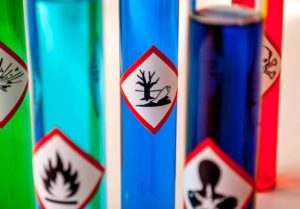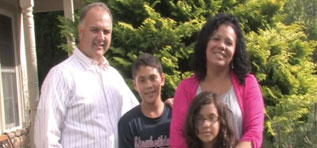Why Poison Prevention
Week is Important
-
Protecting our children is our top priority
The Consumer Product Safety Commission warns that 9 out of 10 unintentional child poisonings happen in the home. Poison Prevention Week gives us the tools to make sure our children don’t become another statistic.
-
There’s so much to know
It’s easy to become overwhelmed by all the warning labels affixed to the products we bring into our homes. Poison Prevention Week inspires us to learn the basics and to continuously update our knowledge with the latest info.
-
Parents must get involved
Parents play a critical role in helping their tweens learn about the responsible use of OTC (over-the-counter) medicines
.
 Poisoning is the leading cause of injury death in the United States. Drugs – both pharmaceutical and illicit – cause the vast majority of poisoning deaths. Since 1962, the President of the United States has proclaimed the third week of March as National Poison Prevention Week to raise awareness about the dangers of poisonings and how to prevent them.
Poisoning is the leading cause of injury death in the United States. Drugs – both pharmaceutical and illicit – cause the vast majority of poisoning deaths. Since 1962, the President of the United States has proclaimed the third week of March as National Poison Prevention Week to raise awareness about the dangers of poisonings and how to prevent them. Just about anything can be poisonous if it is used in the wrong way, by the wrong person, or in the wrong amount. In 2014, about half of all cases managed by Poison Centers involved children younger than 6 – that’s over one million calls. The number of children dying from poisoning has more than doubled since 1999. Analgesics (pain relievers), antihistamines and vitamins are among the top 10 substances identified in pediatric overdoses.
Opioid analgesic pain relievers are involved in a substantial proportion of drug poisoning deaths. Opioid analgesics include natural and semi-synthetic opioid analgesics such as hydrocodone, morphine, and oxycodone; and other synthetic opioid analgesics such as fentanyl and methadone. With so many adults abusing these substances today, the potential access to these drugs by children is even greater. It takes only seconds for a child to get hold of something poisonous.
While poisoning is the leading cause of injury death in the United States, many poisonings are preventable—follow these tips to help prevent poisonings:
• Only take prescription medications that are prescribed to you by a healthcare professional. Misusing or abusing prescription or over-the-counter medications is not a “safe” alternative to illicit substance abuse.
• Never take larger or more frequent doses of your medications, particularly prescription pain medications, to try to get faster or more powerful effects.
• Never share or sell your prescription drugs.
• Keep all prescription medicines (especially prescription painkillers, such as those containing methadone, hydrocodone, or oxycodone), over-the-counter medicines (including pain or fever relievers and cough and cold medicines), vitamins and herbals in a safe place that can only be reached by adults.
• Follow directions on the label when you give or take medicines. Read all warning labels for potential interactions with other medications or alcohol.
• Turn on a light when you give or take medicines at night so that you know you have the correct amount of the right medicine.
• Keep medicines in their original bottles or containers.
• Monitor the use of medicines prescribed for children and teenagers, such as medicines for attention deficit hyperactivity disorder, or ADHD.
• Dispose of unused, unneeded, or expired prescription drugs.
It’s important to remember that poisonings can happen to anyone, anywhere, and at any time. The good news is that many poisonings are preventable, and if you need help, it’s readily available by calling Poison Help at 1-800-222-1222.
 Poisoning is the leading cause of injury death in the United States. Drugs – both pharmaceutical and illicit – cause the vast majority of poisoning deaths. Since 1962, the President of the United States has proclaimed the third week of March as National Poison Prevention Week to raise awareness about the dangers of poisonings and how to prevent them.
Poisoning is the leading cause of injury death in the United States. Drugs – both pharmaceutical and illicit – cause the vast majority of poisoning deaths. Since 1962, the President of the United States has proclaimed the third week of March as National Poison Prevention Week to raise awareness about the dangers of poisonings and how to prevent them. 




